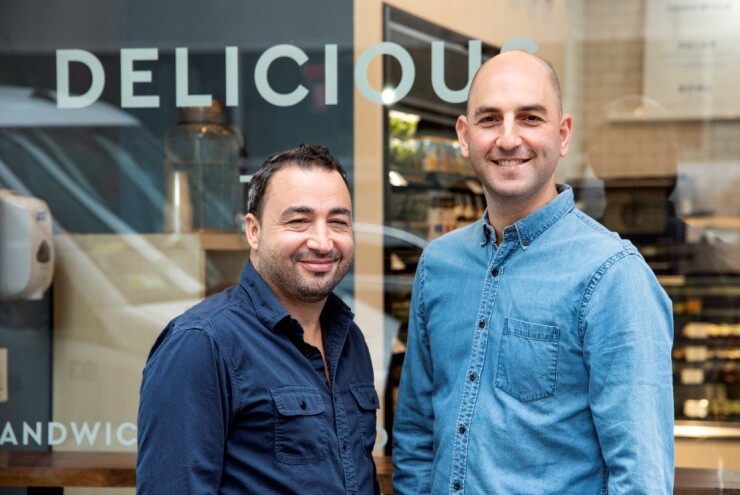Nestled among the waves of tourists and commuters near Grand Central Terminal is a spot were a “no cash” store is working, free from political pressures. But its success still suggests that paperless payments are a niche play.
The store, Artiserie — a sandwich shop at East 45th Street and Lexington Ave. — doesn’t accept paper money, and has been successful enough in its first year of business to chart an expansion strategy for next year.
Artiserie’s staff preassemble ingredients, which are then “flipped” into baguettes. The store’s concept is to remove all inorganic materials. In addition to not accepting cash, the store uses only uses compostable materials.

“When we talked to people in the industry when preparing to open, we realized the nine out of ten customers are using credit cards anyway, and there are a lot of benefits of going cashless,” said Adam Mehrfar, a co-founder of Artiserie.
Artiserie’s founders are aware of the controversy that surrounds cashless stores, namely that they don’t serve underbanked consumers and also cut off access to
“We want everyone to participate and don’t discriminate against anyone,” said Mehrfar. “We made the right business decision in order to survive in a complicated and difficult market.”
According to
Torres' office said it expects a meeting on the bill in February. In an email from Artiserie's public relations representative, Gavin Caganoff, another Artiserie co-founder, said that based on Artiserie's current, it would require 1.5 hours of additional labor per day. That equates to 378 additional hours per year or $6,350, he said. This estimated cost does not take into account the negative impact it would have on our throughput possibly resulting in a loss of sales, Caganoff said, adding the store would also have to purchase a cash register, safe and implement a cash management process. "It would require a significant operational change," he said.
Like Artiserie, those stores are located in parts of the city where consumers are most likely to have credit or debit cards and/or mobile wallet apps.
“We do get a customer here or there that takes out cash to pay,” said Caganoff. "Most often they’re tourists…there’s a lot of hotels in the neighborhood. In almost all cases they happily pull out a card, so it’s not even a blip on the radar.”
There are also unseen benefits of not having to handle cash, Caganoff said. "There’s more time for customer service, training and more time for business strategy rather than counting coins or operating a register.”
Most of the media coverage of the New York anti-cash ban bill has focused on
“If anything there are benefits to the city. You can’t hide income or sales tax from going cashless,” Mehrfar said. “And there’s a safety issue. You don’t have to worry about going to a bank with a bag of money.”
In





